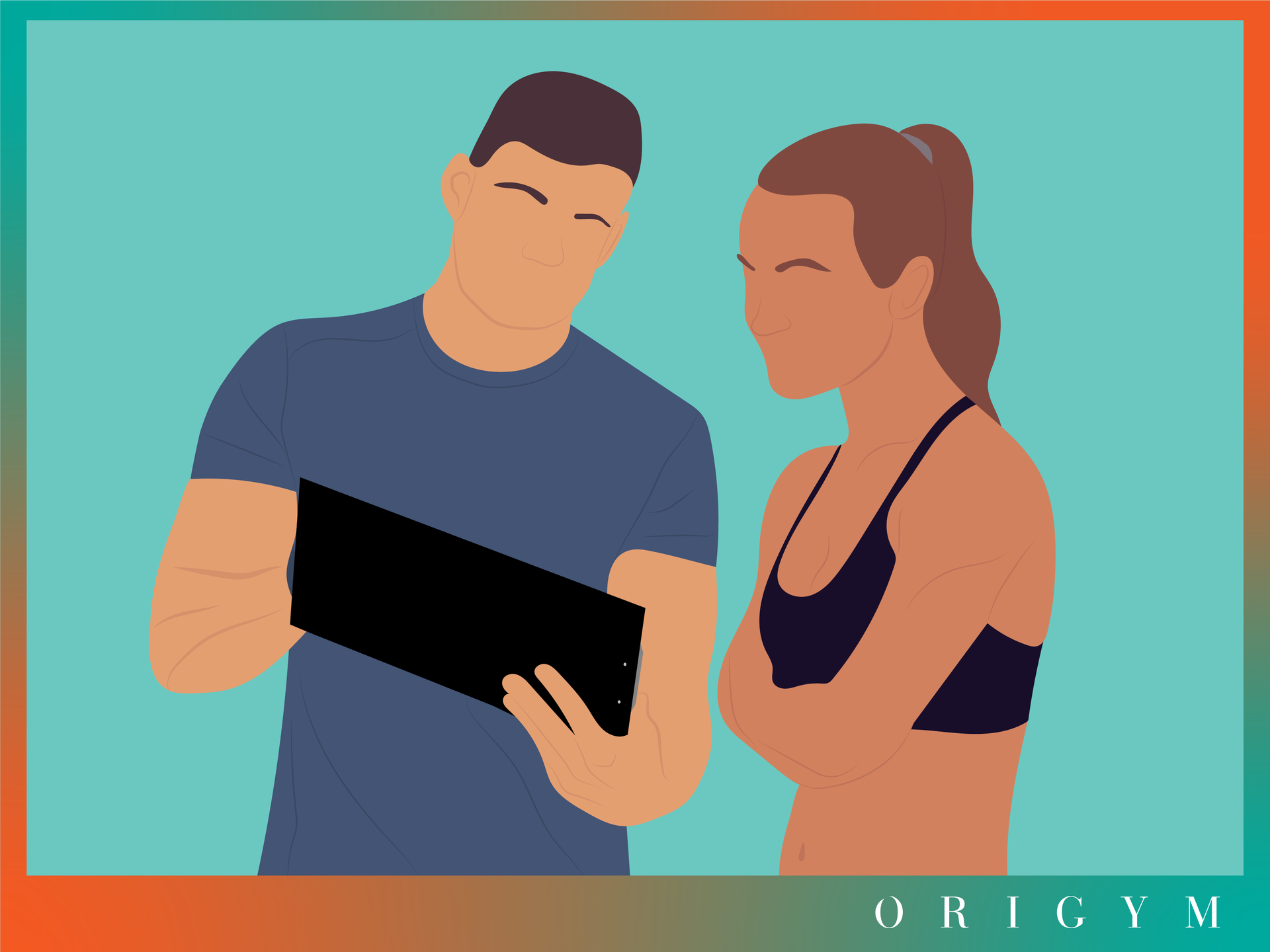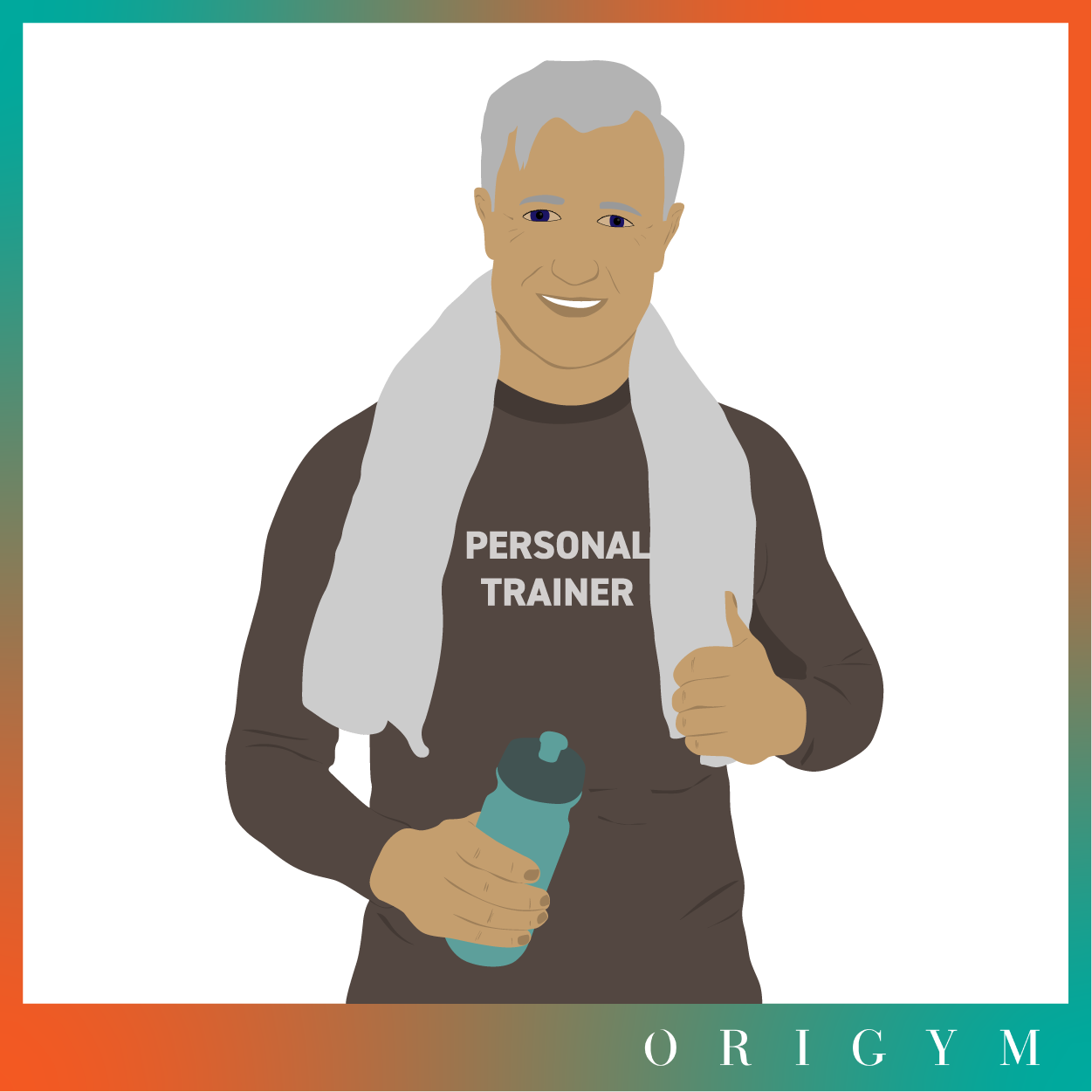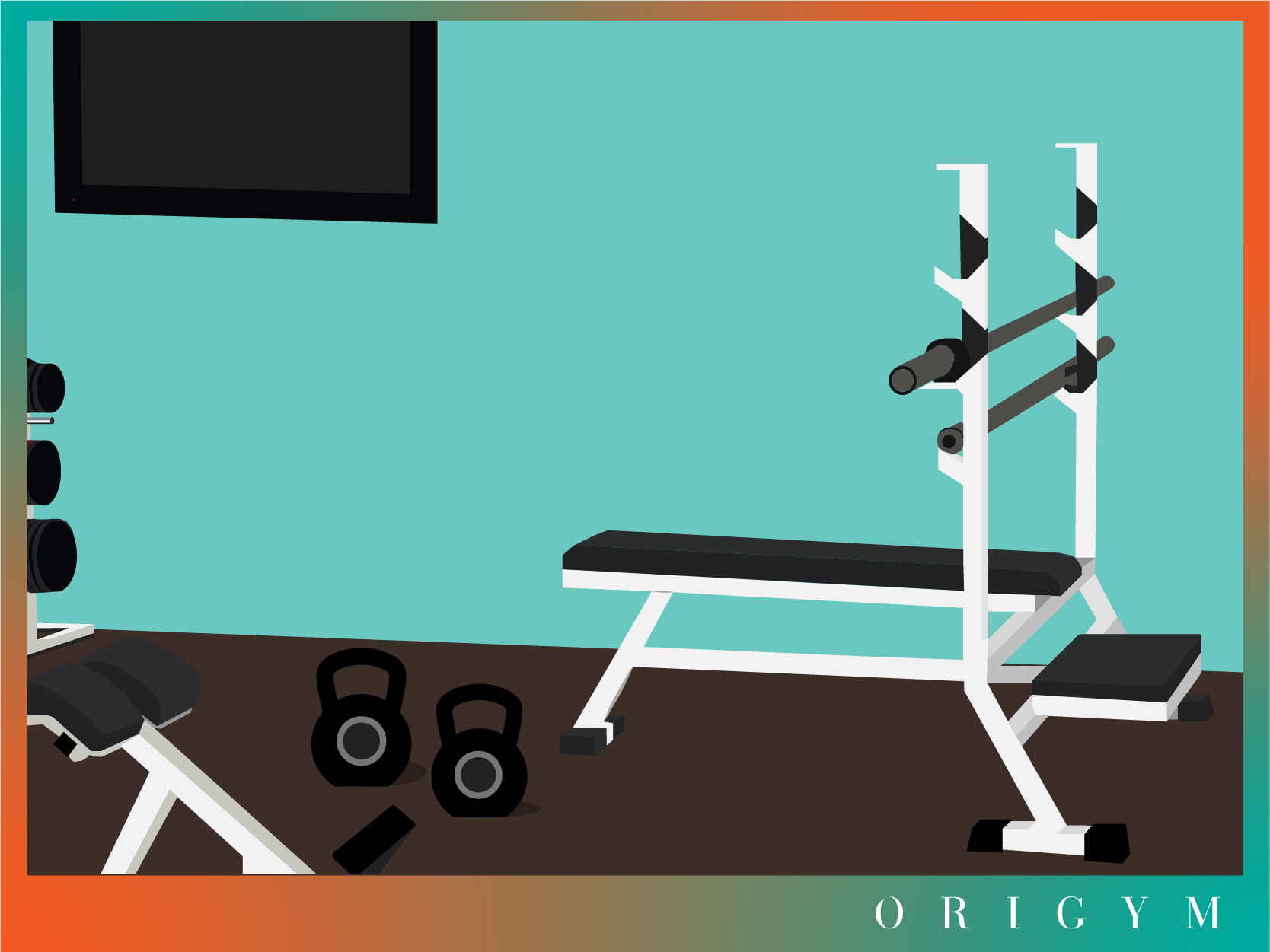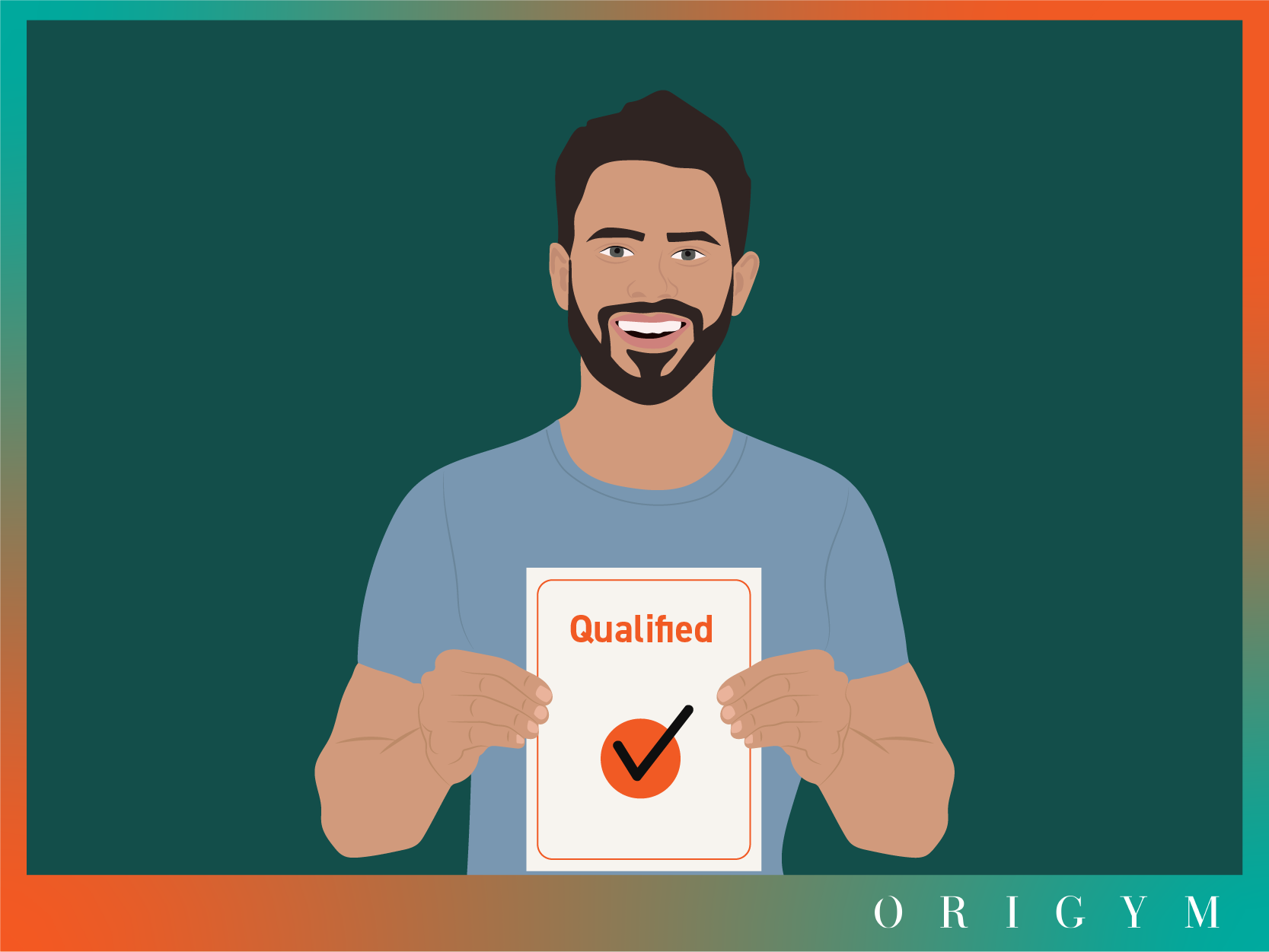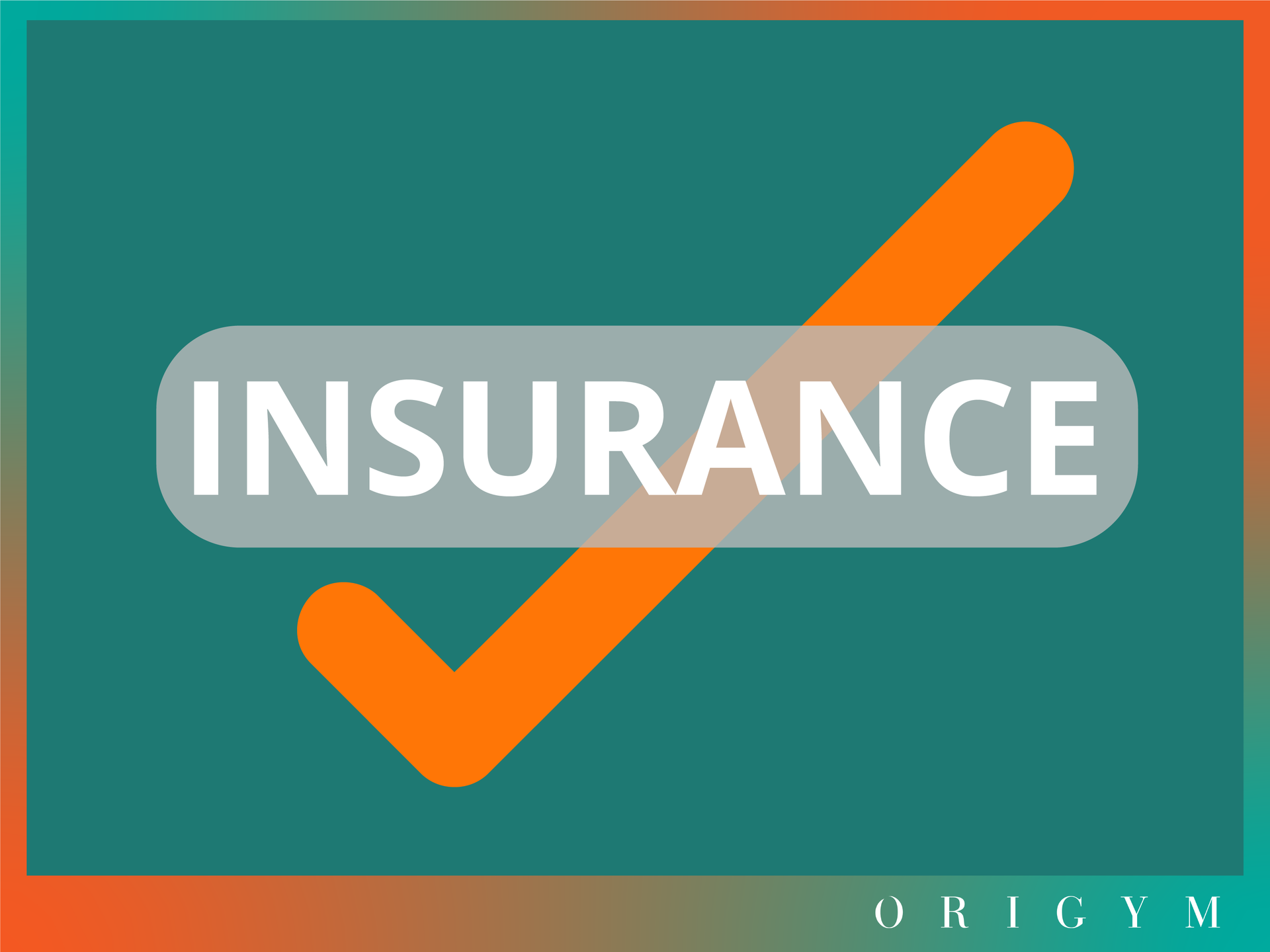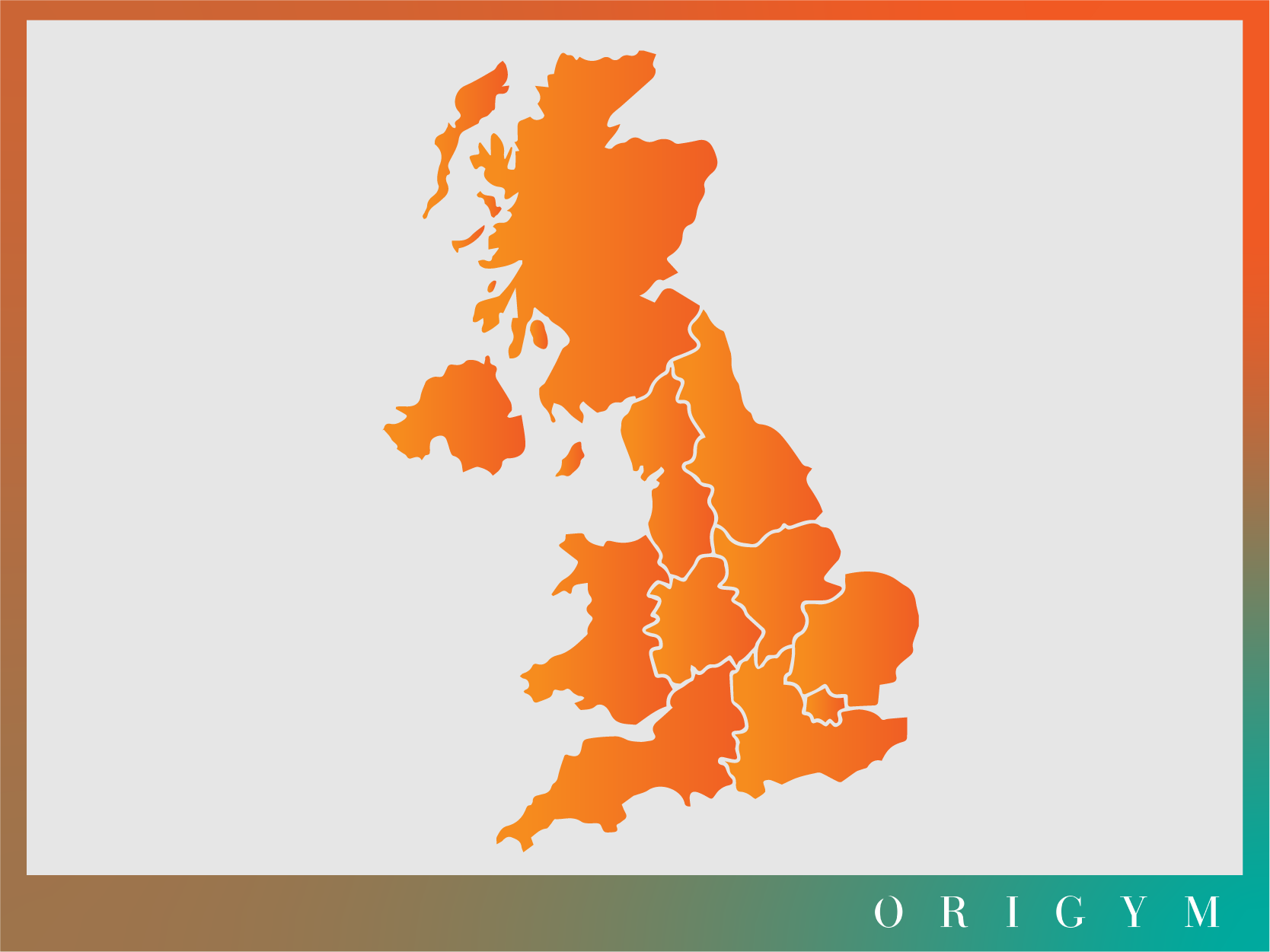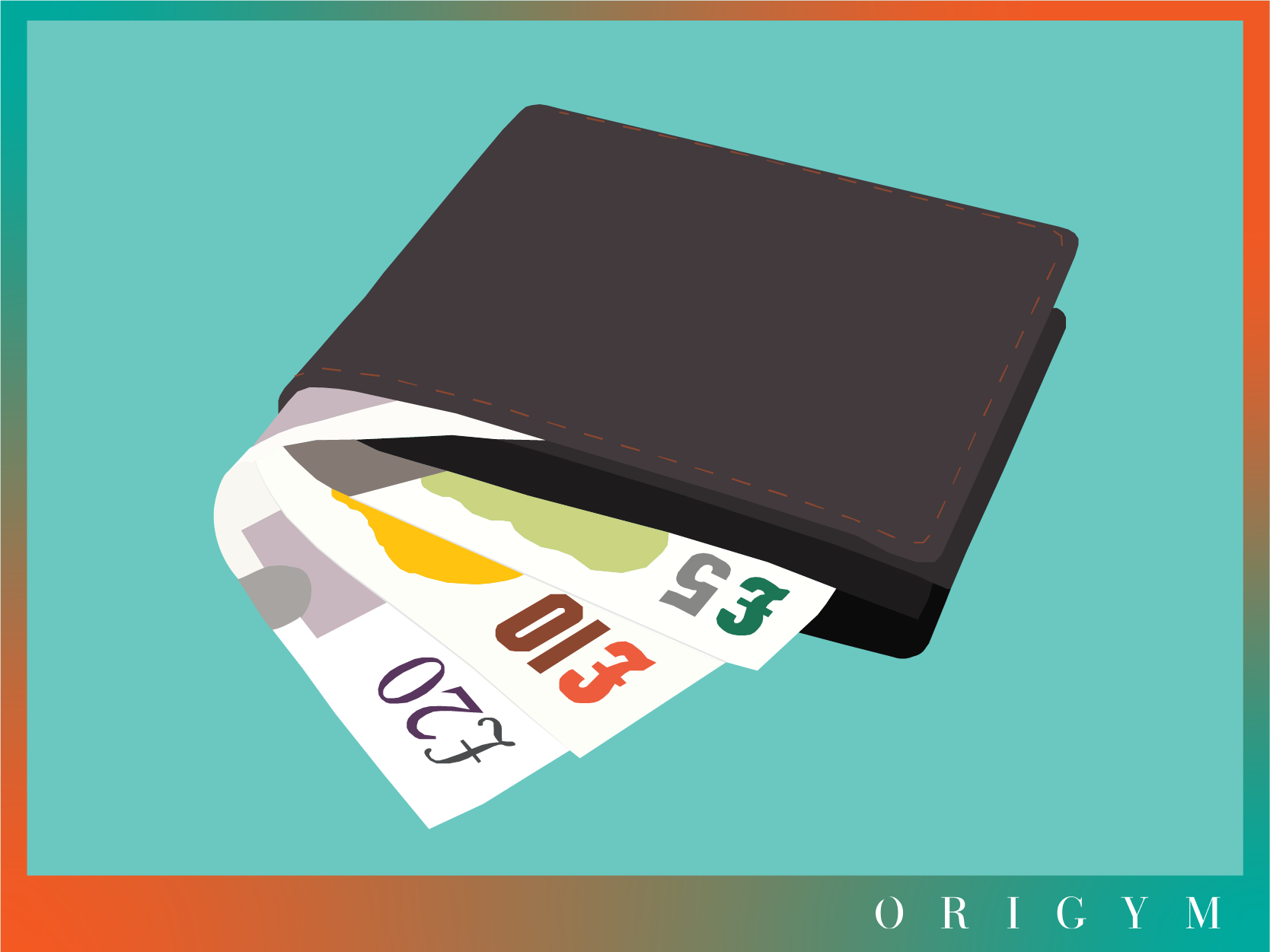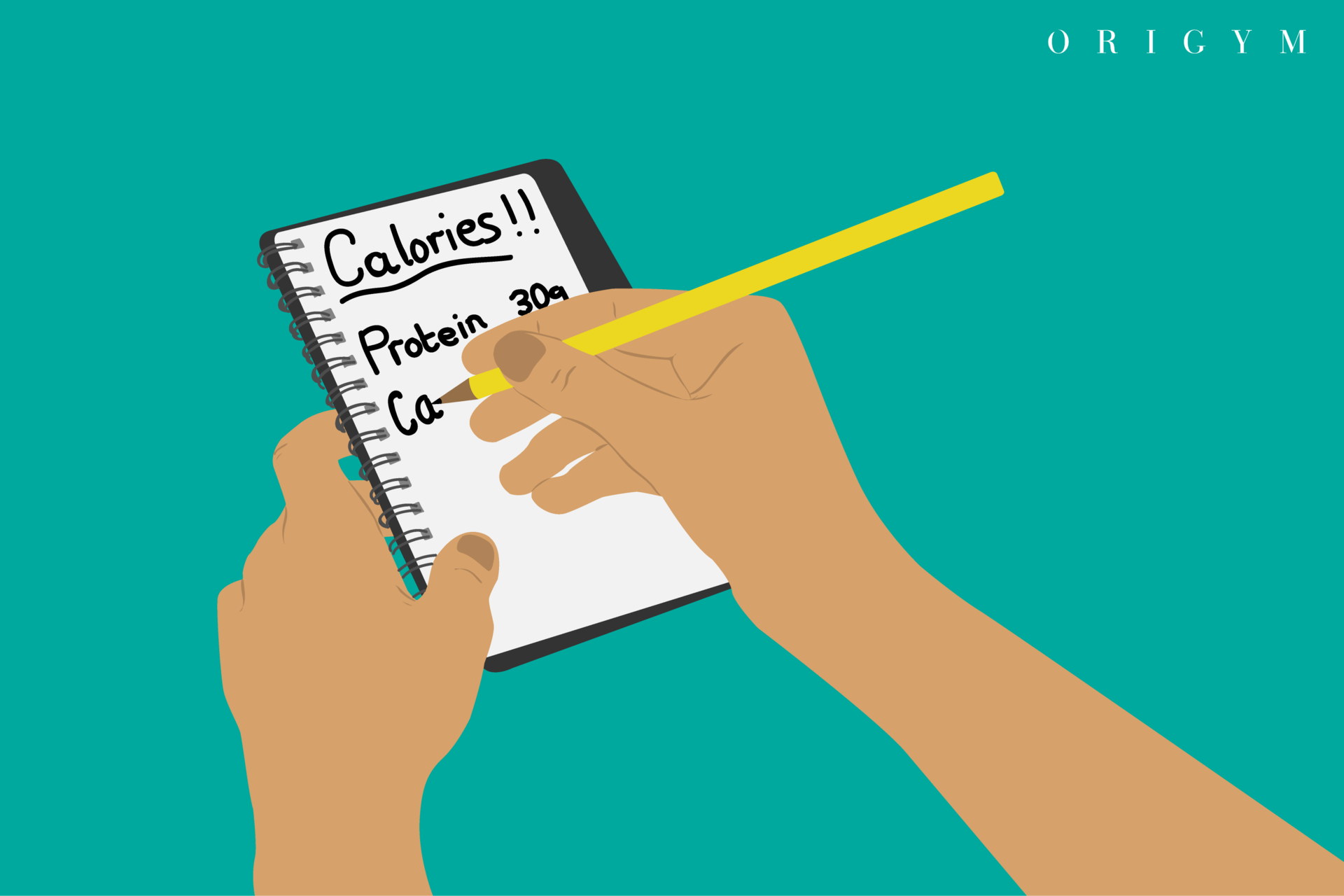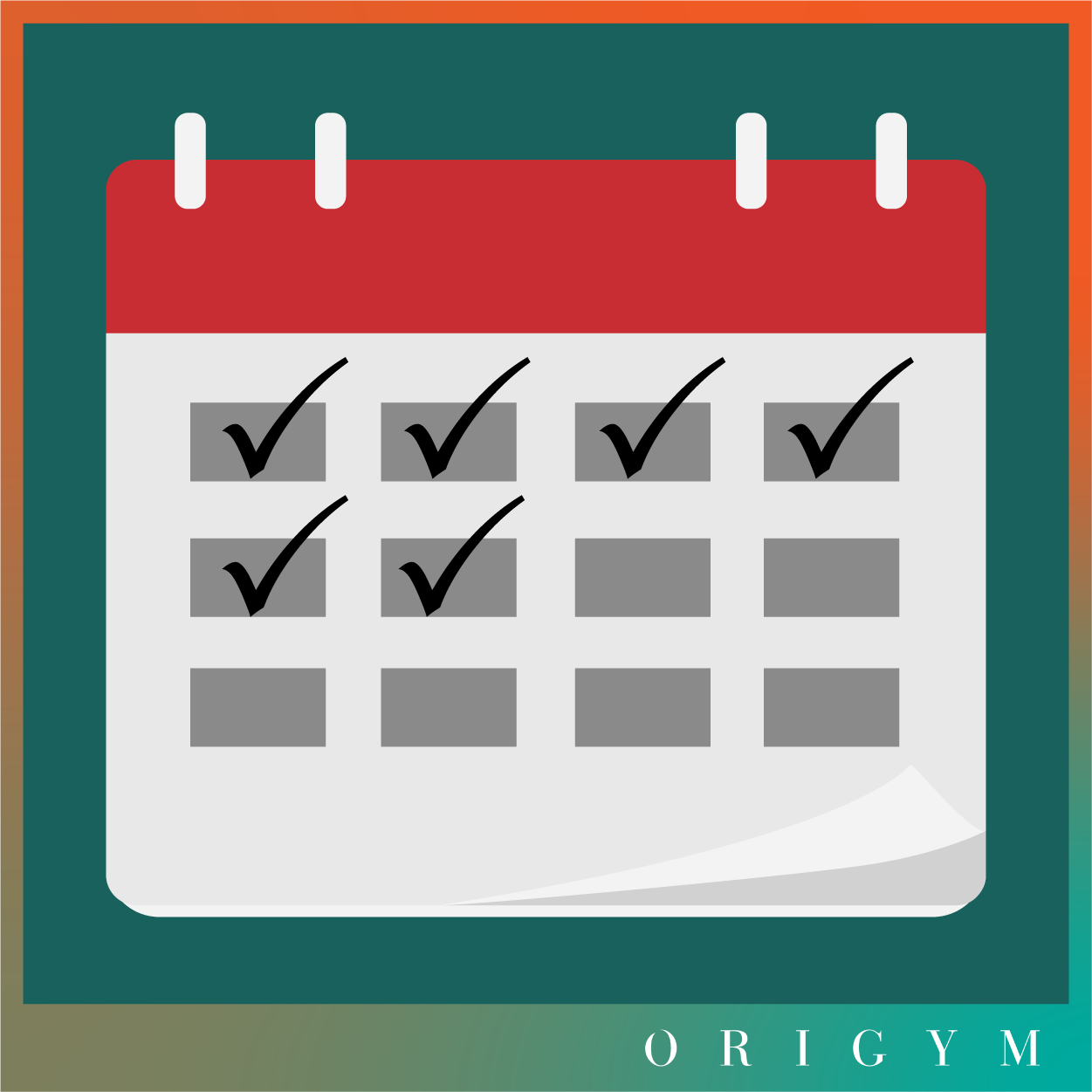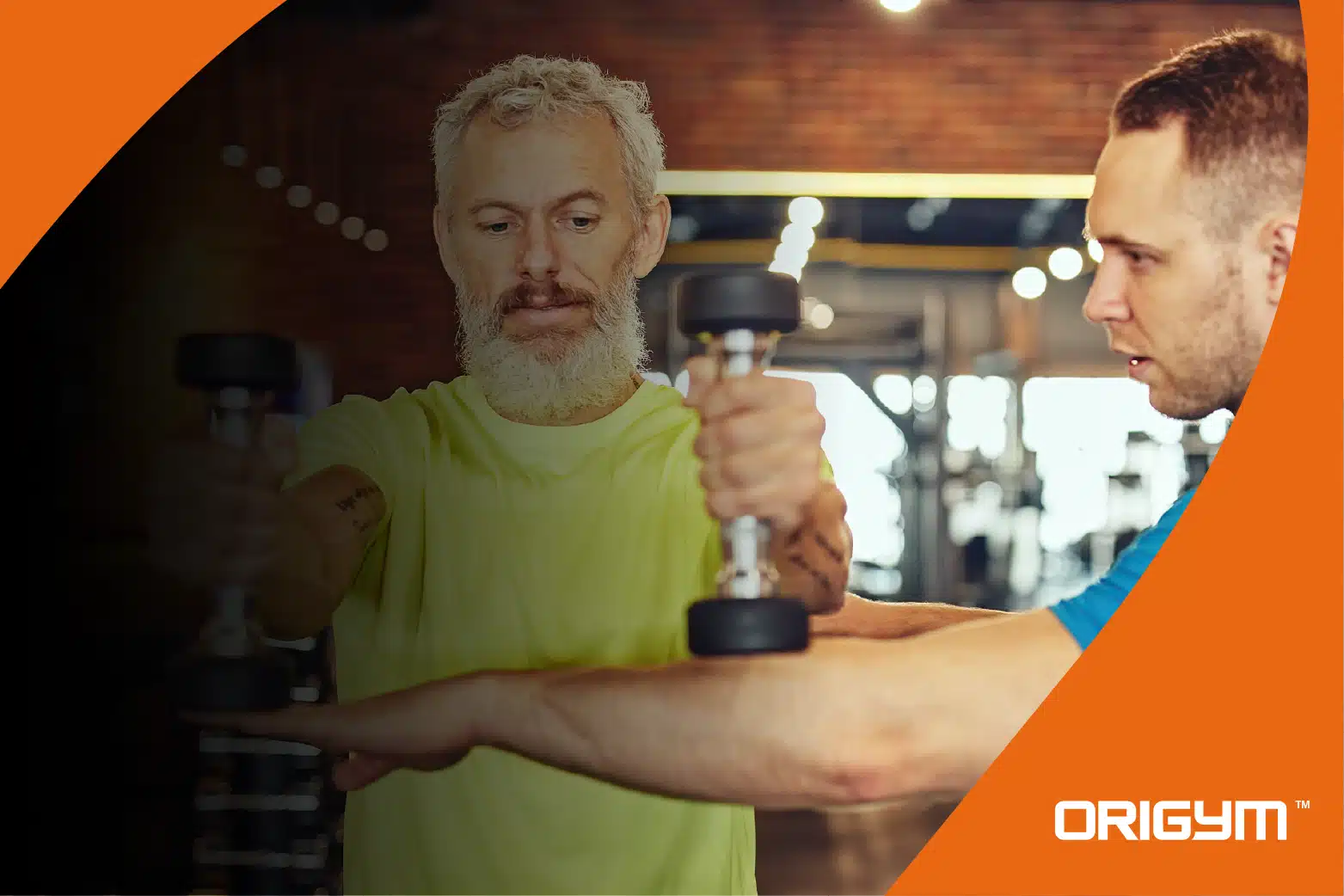With so many out there, choosing a personal trainer can seem like an overwhelming task. That’s why we’ve put together this ultimate guide explaining how to choose a personal trainer!
Whether you’ve already started your search or simply want to know what to look out for before you start, we’re here to make the process easier for you.
This articles covers:
- What Is A Personal Trainer?
- What Does A Personal Trainer Do?
- Where To Find A Good Personal Trainer
- How To Choose A Personal Trainer
If you think you have what it takes to be a personal trainer yourself, check out OriGym’s range of personal training courses now or download our free course prospectus to learn more about what we offer!
What Is A Personal Trainer?
Before we delve into how to choose one, what exactly is a personal trainer?
Put simply, a personal trainer is a certified individual who works on a 1-to-1 basis with a client to help them achieve their fitness goals.
A personal trainer will design a fitness programme that is specifically tailored to their client’s needs. This is delivered through several sessions, either in a gym environment, at home or even online.
The fitness sector is ever-growing, making personal training one of the most exciting career choices out there! For more information about what exactly you can expect from a personal training job, check out our guide to a personal trainer job description here.
What Does A Personal Trainer Do?
The main role of a personal trainer is to deliver personalised training programmes to clients. But what exactly does that involve?
One of the first things that a personal trainer will do with a new client is conduct an initial fitness assessment. This is when a PT will get to know their client and ask what their goals are in order to make a programme tailored to them. They will also take some initial measurements such as weight and height, and carry out tests to measure their current fitness level.
After this first assessment, the personal trainer will deliver a series of 1-on-1 sessions. These are carried out either in a gym environment, at home, or even online.
During a typical session, a personal trainer will guide a client through a workout routine. This can involve demonstrating exercises, counting reps and sets and of course, providing encouragement and motivation!
A personal trainer may also give advice on nutrition and lifestyle choices to help clients get the most out of the programme.
When wondering how to choose a personal trainer, a simple answer is that they should be able to deliver all of these things and more to their clients. Find out more about the roles and responsibilities of a personal trainer here.
Thinking that you would make a good personal trainer yourself? OriGym’s industry-leading personal trainer courses can help you turn your passion for fitness into a lucrative career!
Where To Find A Good Personal Trainer
Before even considering how to choose a personal trainer, let’s discuss where you should look to find one!
There are main 3 ways to find a personal trainer:
-
Online
Perhaps the most obvious way to find a personal trainer is online! Like nearly all businesses and services today, the majority of personal trainers will have an online presence.
The main benefit of finding a personal trainer online is that you can really refine your search. The more information you add to your search, the more relevant the results will be! For example, adding a location or ‘near me’ to the end of your Google search narrows down the thousands of results to only show PTs in your local area.
You can refine your search even further by specifying your goals. For example, ‘personal trainers for quick weight loss’, or ‘personal trainers for marathon training’ will show PTs with those specialisms.
As well as searching Google yourself, there are many websites dedicated to helping you find a personal trainer. Some popular ones are Bark and Yelp, both of which have a huge database of personal trainers and allow you to refine your search by factors like location and cost.
Plus, any reputable personal trainer will have their contact details listed online, making it easy for you to get in touch with them if you’re interested!
-
Gym
If you are already a member of a gym, it is likely that they will have a pool of personal trainers that they employ for you to choose from.
You may find that they are listed on a notice board in the gym itself, so you can check them out during your regular gym session. They should also be listed on the gym’s website too.
You can also ask the gym staff themselves, as they will usually be able to refer you to a personal trainer that they think would suit you best.
Finding a personal trainer through a gym can be a lot more straightforward than finding one independently. You can (nearly always) guarantee that they are of a good quality if they have been employed by a gym, as there will have been certain standards to meet in order for them to get the job.
-
Word of mouth
With the Internet being such a quick and easy search tool, word of mouth recommendations are often overlooked. But in fact, it is a great way to find a personal trainer!
Ask friends, family or colleagues if they can recommend a personal trainer that they have used in the past or are using at the moment. This way, you can get an honest first-hand review. Plus, some personal trainers offer discounts if you refer a friend.
However, if taking a recommendation from someone else, remember there are so many different factors to consider when choosing a personal trainer. What works for someone else may not work for you!
How To Choose A Personal Trainer
From qualifications to location, here are 9 things you should consider when choosing a personal trainer.
#1- Determine your goals
Before you even begin to start thinking about how to choose a personal trainer, you need to decide what you want to get out of it. This will make the whole process of finding a PT a lot easier as it will help you know what to look for from the start.
If you’ve been considering getting a personal trainer, chances are you already have some goals in mind. Many people begin with a general aim such as ‘I want to be stronger’ or ‘I want to lose weight’. Whilst this is a great start, it is worth trying to be more specific with what you want to achieve.
For example, if you want to lose weight, think about why you want to lose weight. Is it simply for aesthetic reasons? Or perhaps you have a health condition that could be helped by losing some weight.
Another common reason that people seek out a personal trainer is to improve their sporting performance. For example, your goal might be to build upper body strength so that you can be better at boxing. Or perhaps you want to work on your cardio fitness to improve your running technique.
When thinking about your goals, you should also make sure that they are attainable in terms of how much time and money you can commit to achieving them. Whilst goals should be ambitious, they should also be realistic! For example, aiming to run a marathon in 2 weeks sounds admirable, but the reality would be time-consuming and expensive!
As well as helping your search, determining specific and attainable goals will help your future personal trainer make a more tailored and effective programme for you.
#2- Check their baseline qualifications
Perhaps the most important thing to check when choosing a personal trainer is their qualifications. But what credentials should you look out for?
The first qualification that a PT must have is their Level 3 Gym Instructing Course. This is an entry-level qualification that allows them to be a fitness instructor in a gym.
To be a PT, they must also have a Level 4 Personal Training qualification. Without this, they cannot call themselves a personal trainer!
A personal trainer’s qualifications should be listed on their website, social media or other platform. If you cannot see them, you should ask to see their qualifications or a CV.
Once you have found someone with these qualifications, it is just as important to check whether their course is awarded from a reputable organisation. Although two personal trainers can claim to have the same Level 4 qualification, there will actually be huge differences between the quality of their training.
The key thing to look out for is accreditation and regulation. A personal training course should be accredited by CIMSPA. Having this means that the qualification meets and surpasses industry-standards. In other words, it is a stamp of quality for a PT!
For example, some PTs may have taken a free personal training course. Although they may qualify with a Level 3 qualification, it is very likely that courses will not have the required accreditation and regulation.
Similarly, their qualification should be regulated by Ofqual. This is simply another sign that a personal trainer has been educated to a high standard. Again, a free personal training course will not provide this.
You may be wondering, why does this matter to me as a client? Ultimately, a personal trainer who has been educated by a reputable and legitimate organisation makes for a better personal trainer!
#3- Look for any additional qualifications
As well as the required Level 4 personal training qualification, a reputable PT will have additional qualifications on top of this.
After qualifying as a personal trainer, you can then take specialist fitness courses in areas such as sports nutrition, sports massage and obesity and weight management. There are also CPD courses in areas ranging from circuit training to boxing and pad work – all of which are offered here at OriGym!
But why is this important when answering the question, ‘how to choose a good personal trainer’? Well, choosing a personal trainer with more than just the standard qualification has several benefits for you as a client.
Firstly, it shows that a PT is dedicated and committed, as they have taken the time to further their fitness knowledge. These are important personal trainer skills to look out for, as they need to be dedicated and committed to helping you achieve your fitness goals!
It also means that as well as all-round fitness knowledge, they can help you with more specialist areas of fitness. For example, if you are looking to build muscle or train for a particular sport, a personal trainer who has taken a CPD course in strength and conditioning would be best for you!
Finally, the more qualifications a personal trainer has, the more experience they have in the industry. And the more experience they have, the more likely they are to have perfected their skills and teaching methods- which will of course benefit you!
Here at OriGym, we know that additional qualifications help a personal trainer expand their client base. That’s why we offer a range of personal trainer qualification packages that include all the key qualifications you need to stand out from the rest.
Want to know more about personal training? Here’s 3 more articles we think you’ll love:
#4- Personality and teaching style
As well as qualifications, it is equally important to choose a personal trainer with the right personality and teaching style for you.
Everyone’s preferences are different; some clients want the kind of PT who shouts at them to get through the last set! But others respond better to positive reinforcement and a gentler approach.
Since personality is so subjective, it can be hard to judge what a PT is like purely from their personal trainer bio on their website, for example. It is therefore wise to speak to a potential personal trainer face-to-face in order to see if you gel with their personality and to ask them about their teaching style.
Most personal trainers will offer a free initial consultation session, where you will discuss your goals and get to know each other before committing to a programme. First impressions count, so this is the perfect time to decide whether a PT is for you or not!
Even before meeting them in-person, a good way to see if you will get on with a personal trainer is to check out their social media. A quick scroll through their Instagram will usually give you a good indication of their brand, values and teaching style.
#5- Insurance
It may not be the first thing you think of when wondering how to choose a personal trainer, but finding a PT with insurance is vital!
If a personal trainer is hired by a gym, it is likely that they will fall under the gym’s insurance policy.
However, if you choose a freelance personal trainer, they should have their own insurance policy. The key types of insurance are: personal liability insurance, employer liability insurance and public liability insurance.
Check out our article on what insurance a personal trainer needs for more detail on what types of insurance you should look out for.
Not only does having the right insurance protect you both in the event of an accident, it also shows that a personal trainer has made an effort to think about the safety and wellbeing of their clients. Considering you are putting so much time, trust and money into them, this should go without saying!
#6- Location
When wondering how to choose a good personal trainer, location is one of the first things that should spring to mind!
Are you willing to drive half an hour to your PT session? Or would you prefer to be within walking distance from home? Or perhaps you’d rather someone located near the office so you can go before or after work?
As well as the distance, think about what kind of setting you want to train in. Some people prefer to have their sessions in a busy gym environment as they feel more inspired being around other people. But others will find this off-putting and prefer a 1-on-1 session in a fitness studio for example.
There is also the option of a home personal trainer. This is when a PT comes to your home, making it great for busy people or those who want to avoid travelling to a gym or fitness centre.
If you don’t fancy travelling at all, have you ever considered an online personal trainer? This is an increasingly popular option for those with busy lives or people who work from home and want to squeeze in a lunchtime session from the comfort of their own home.
Whatever option you choose, you should make sure that it fits in with your lifestyle and schedule!
#7- Find out how much they charge
An obvious yet often overlooked factor to consider when discussing how to choose a good personal trainer is the price.
Before you start your hunt for a PT, it is worth setting yourself a budget. That way, you can narrow down your search and make sure that you don’t jump into something that you can’t afford.
A lot of personal trainers may offer a free initial consultation session, which is always worth taking advantage of before you commit!
Most personal trainers will also offer a discount for buying a block of several sessions in advance. This is a great way to save money in the long run!
Unfortunately, there is no definitive answer to how much a personal trainer costs. You can expect to pay anything from £25-45 per session. The price depends on a variety of factors, such as the PT’s location, experience and specialisms.
You should therefore factor in the quality of the personal training you want to receive into your budget. For example, a personal trainer with several specialist and CPD qualifications under their belt can charge more since they will be delivering a more specialist and advanced service. In other words, when it comes to personal training costs, you get what you pay for!
Find out more about how much a personal trainer costs here!
#8- Read client testimonials and reviews
Before buying any product or service, it is always a good idea to read reviews from customers. And the same goes for choosing a personal trainer!
Client testimonials can normally be found on a personal trainer’s website or social media. However, they are unlikely to include negative reviews in their own marketing, so you should take these reviews with a pinch of salt!
If you are finding a personal trainer through a gym or fitness centre, they will most likely have a dedicated section on their website listing their PTs alongside client reviews.
That said, remember that choosing a personal trainer is really a matter of preference. Different people will respond better to different teaching methods. Ultimately, when wondering ‘how to choose a good personal trainer’, reviews are useful in some ways more than others.
For example, a client may leave a negative review complaining about a personal trainer not knowing enough about kettlebell training. But if you aren’t interested in kettlebell training, this review is clearly irrelevant to you!
Where reviews are useful, however, is when looking at things such as punctuality, reliability and the quality of their programmes. Unlike personality and teaching style, these factors are more objective and easy to judge; they are either done well or not!
#9- Decide if you want nutritional advice
Nutrition is just as important as exercise when it comes to achieving your fitness goals. If you think that you need some nutritional guidance, you should make sure that your personal trainer is qualified to do so.
As well as their Level 3 Personal Training Qualification, it is a good sign if they have taken a Level 4 Sports Nutrition Course. This means that they will have more experience behind them, which makes many clients more inclined to trust their nutritional advice.
If your diet is something that you want to particularly work on, it is important to look for a PT with this additional qualification. Whilst all personal trainers should have an understanding of nutrition, not all have taken the time to specialise in it.
However, it is worth noting that a personal trainer’s primary role is to give you an exercise programme. If you are looking for a more specialist nutritional service, you should consider seeing a dietician instead.
If you’re still unsure, we have a full article discussing whether personal trainers can give nutritional advice here.
#10- Availability
Before you get your hopes up about finding the perfect personal trainer, it is vital to check that they are even able to take on another client!
If you think you’ve found the PT for you, one of the first questions to ask is whether they can hold the sessions at a time that suits you. Do you prefer an early morning session or would you rather train in the evening?
You should also consider how often you want your sessions to be. Are you looking for sessions several times a week, once a week or just once a month? This often depends on your goals and the time scale in which you want to achieve them, so you should discuss this with any potential personal trainer.
It is a good idea to establish how their booking system works too. Some personal trainers prefer to plan months in advance, whereas others will ask that you simply book a session the week before.
Finally, you should ask them about their cancellation policy. If something comes up and you can’t make your session, will you still be charged? How much notice do they need you to give before cancelling?
One of the main things a personal trainer needs to know is that they should expect to be flexible. Knowing all of these things before you commit is a good way to make sure that a personal trainer will work for you at a logistical level.
Before you go!
We hope that you now know how to choose a personal trainer and what you should look out for in your search. From qualifications to location, there are many things to consider but ultimately, the decision is yours!
Has all this talk of personal training got you thinking about becoming one yourself? Turn your passion for fitness into a lucrative career with OriGym’s industry-leading personal training courses. To find out more about the full range of courses we offer, download our free prospectus here!

